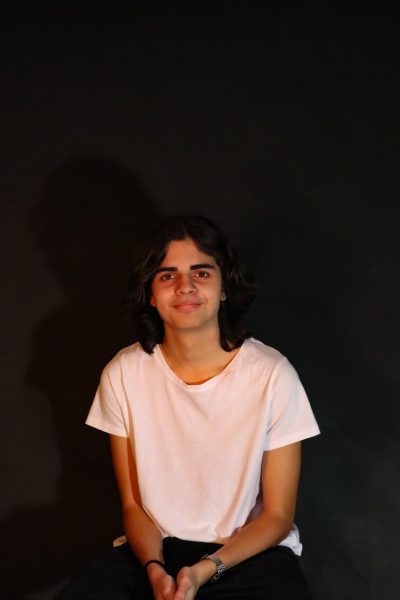In the age of TikToks, Instagram Reels, and YouTube Shorts, short-form content has dominated the cultural zeitgeist as of late. The immense popularity of short-form content has spread its tendrils to all forms of media, particularly film, journalism and literature.
FILM
While the film industry is slow to adapt to modern trends, there are recent releases that prioritize appealing to current generations over creating a good piece of art. 2023’s “Saltburn” particularly tends to focus on creating an appealing aesthetic rather than having a genuine message. “Saltburn” takes place in the titular Saltburn estate, a large, opulent and beautiful set piece. This is the film’s biggest strength, credit where it’s due, “Saltburn” looks great. But that’s where the film’s positives stop, the film attempts to pose the social critique that middle and lower classes’ obsessions with wealth will continue to keep them entrenched in a system designed to keep them down. While that idea itself is interesting, the film’s way of going about it is sloppy at best and downright awful at worst. When the film exploded on TikTok, with videos about the film reaching millions of views. Short-form content encourages visuals-first films like “Saltburn”, as it places emphasis on how things look rather than what things mean. This is evidenced by the most popular genre of “Saltburn”-related videos. Edits. Edits are a genre of video that has existed far before TikTok, but the genre has enjoyed major popularity on the platform. An edit is a mere seconds-long video, typically set to music, that is a collection of clips of a particular film, character, or actor Edits are a genre of video that are predicated upon their visuals. One of the most popular edits on TikTok being an edit of Jacob Elordi in “Saltburn”, with the video having (as of now) 8.4 million likes. The fact that videos purely focused on the visual look and aesthetic of the film are the most popular on the platform speaks to the nature of the film and its fanbase.
JOURNALISM
As print media continues to crumble under the weight of digital and social media, newspapers are competing for readers’ eyes on an unprecedented scale. News articles nowadays tend to focus on short, eye-catching headlines that oftentimes have little to no actual news to report. Because digital news sites make their money off of advertisements, they are financially motivated to garner as many clicks and page views as possible. Due to this revenue model, dense investigation pieces that take more attention to both read and write are seldom promoted on these platforms.
While this may seem like an innocuous shift in culture, it’s important to remember that issues like the MeToo movement, the Harvey Weinstein scandal and even Watergate were all brought into the public spotlight by journalists performing these long investigations. Those involved with these scandals would likely never have received the consequences they did had their stories not been brought into the public eye.
While major news events do sometimes capture the public’s attention, such as the ongoing conflict in Russia and Ukraine, these scandals rarely stay in the larger conversation. As news content becomes increasingly shorter, so does public awareness of these issues. When the conflict between Russia and Ukraine first began, it was covered extensively by every major news organization. But now, nearly two years later, it is rarely covered, despite the fact that the war is still ongoing. It is imperative that investigations and long pieces of journalism do not fall away to quick gossip pieces.
LITERATURE
For those unaware of the enigmatic community known as BookTok, this community of users and content creators focuses on posting videos about specific pieces of literature. These posts encompass all aspects of the reading experience, including reacting to certain parts of novels, reviewing books they’ve read, and recommending books. It’s the recommendation aspect of BookTok that has grabbed the attention of the literary community, especially those who write novels. Novels that were previously niche or moderately successful saw a drastic rise in popularity after going viral on BookTok. A concerning effect of places like BookTok, however, has been the recommendation of books based on their tropes. This trend especially pertains to young adult literature. Recommending books based on tropes has led to a rise in novels that base their identities upon their tropes, rather than their themes or plots.
CONCLUSION
Media adapts based on how people spend their time and money. If we as an audience demand more thought-provoking and interesting content, the media will change accordingly. Watch challenging movies, read that long article, find a book because it seems interesting not because it has a trope you like. Overall, take the time to look harder for quality before it gets lost in a sea of quantity. Do not settle for mediocrity because it is all you are being offered.










